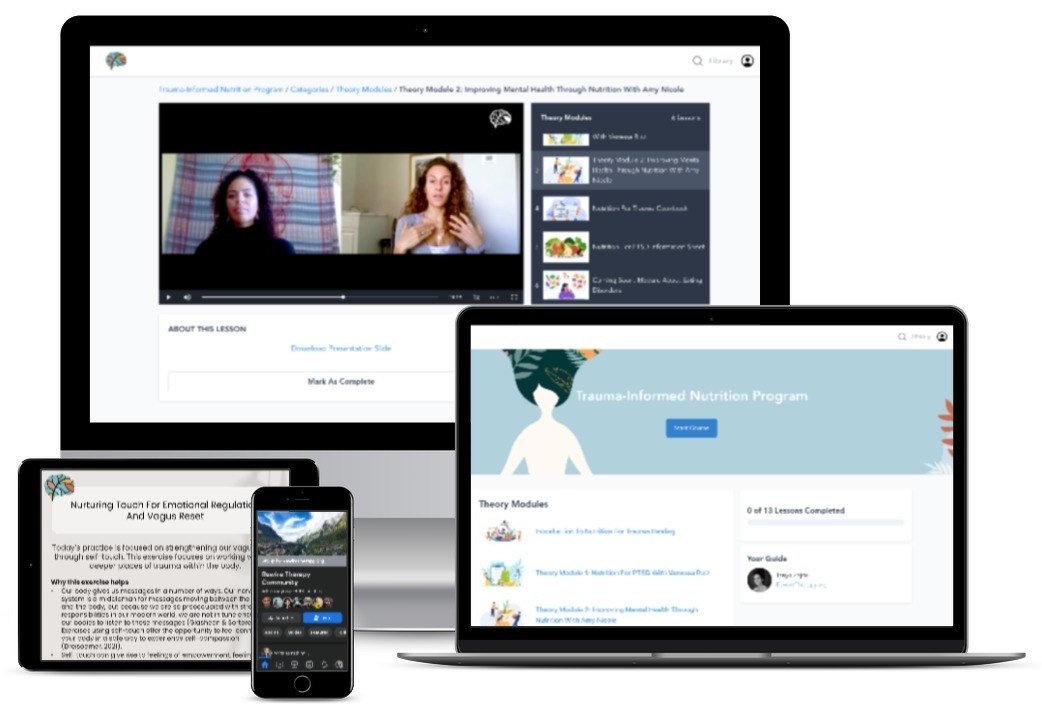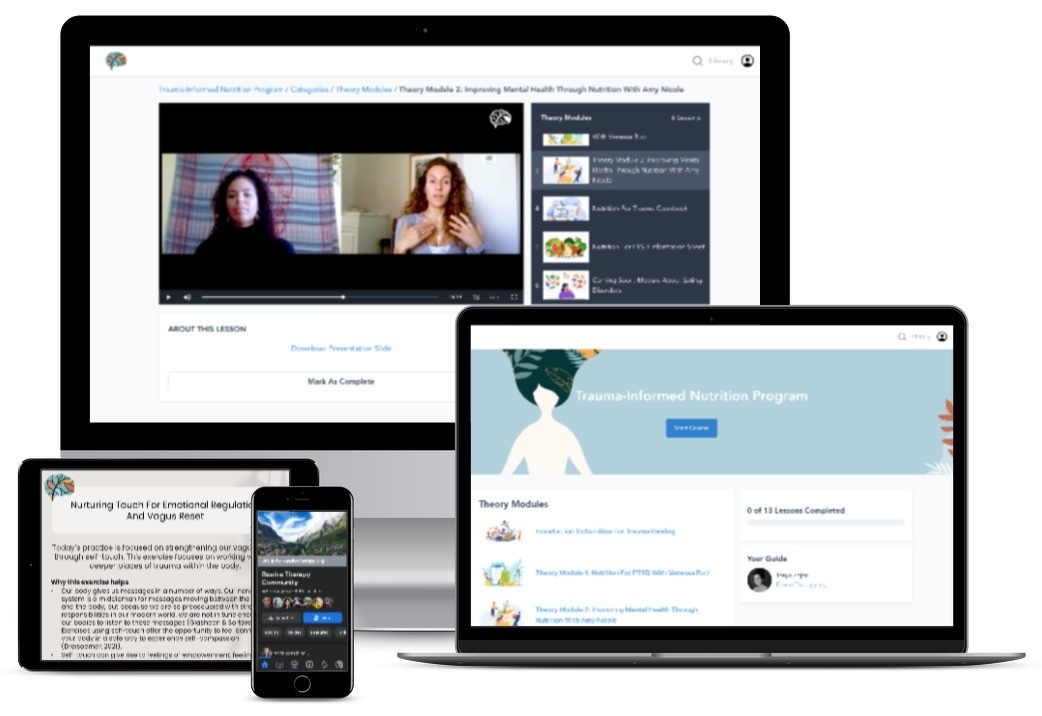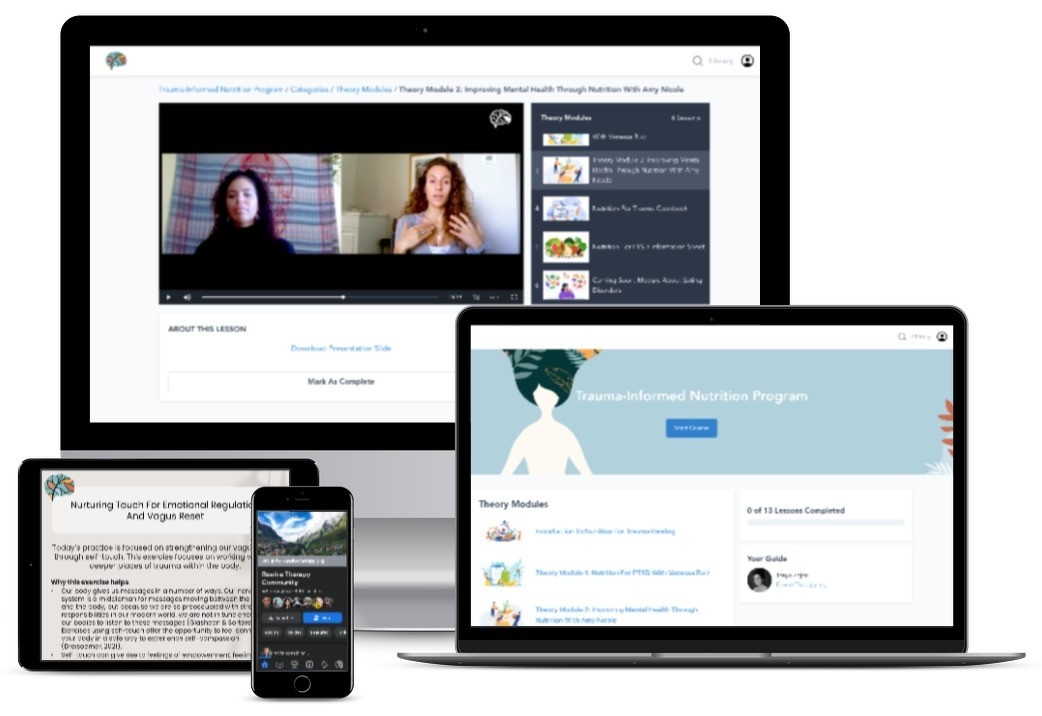Currently 50% Off For A Limited Time
Using Nutrition To Help Heal Trauma
Food can heal the nervous system.
Most people don’t know that nutrition can help alleviate the effects of trauma.
“Your gut has capabilities that surpass all your other organs and even rival your brain” - Emeran Mayer, author of the Mind-Gut Connection.
Trauma can affect our relationship with food and our bodies. According to naturopathic physician, Vanessa Ruiz, our trauma can lead to symptoms such as low appetite or dysregulated eating (Hall, 2015; Vanzhula, 2019).
Current research supports the hypothesis that PTSD may influence the neuroendocrine systems and metabolism (Aaseth et al., 2019)
This helps to explain why survivors of trauma may experience emotional eating, increased cravings for foods high in sugar, fat, and salt, as well as alterations to decision-making surrounding food (Mason et al., 2014; Michopoulos et al., 2016).
Foods high in sugar, fat, and salt can perpetuate cortisol production. This can weaken the gut lining, reduce nutrient absorption, and increase inflammation - which can be unconducive to our healing process (Duong, 2012; Kuijer, 2012; Sylvia, 2018).
Thankfully, there is a way we can leverage nutrition to support the body in moving to a state of autoregulation. A healed gut facilitates the healing of our bodies and spirit.
This is why Rewire Therapy has created the Using Nutrition to Heal Trauma program, developed with experts in holistic and trauma-informed nutrition. This program can help both mental health professionals and survivors learn how to harness the healing powers of food.
Introducing The Nutrition For Trauma Program: Practical Nutrition Techniques To Heal Trauma

Theory Module 1: Nutrition for PTSD With Vanessa Ruiz (37-min)
- Explore the effects of long-term trauma on the body
- Food and eating patterns in trauma survivors
- Explore ways to shift dietary patterns as a trauma survivor
- Tips for therapists on how to support clients through nutrition
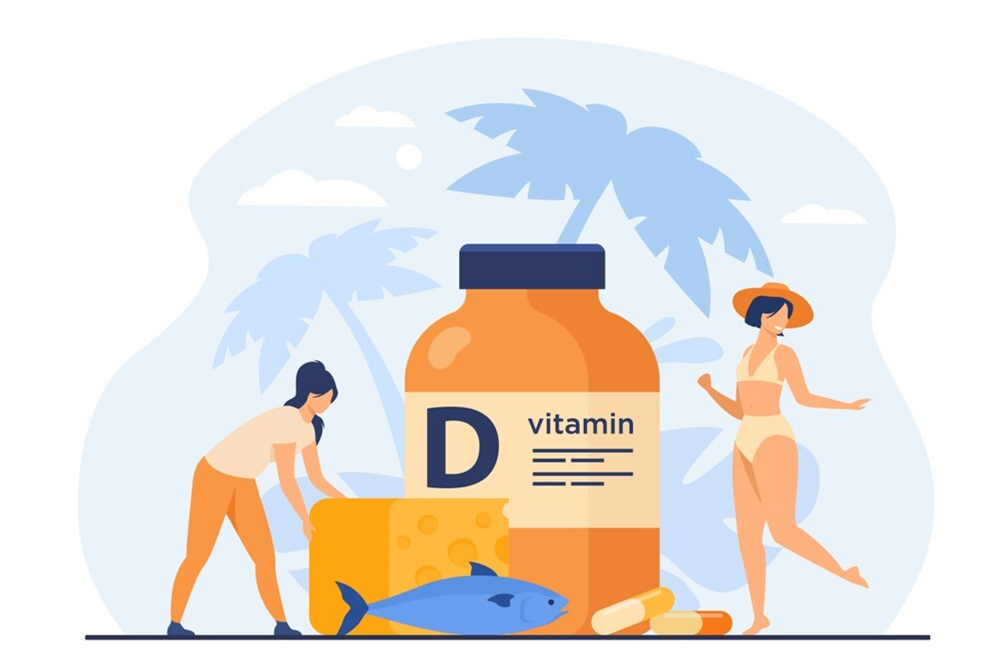
Theory Module 2: Improving Mental Health Through Nutrition With Amy Nicole (60-min)
- Explore how foods can assist with feelings of groundedness
- Understanding the benefits of different foods and supplements for trauma symptoms
- Addressing the physiological effects of trauma through food and lifestyle changes

Theory Module 3: Understanding Eating Disorders With Marlene Van Den Berg (30-min)
- What is an eating disorder?
- Understanding the different types of eating disorders
- Exploring the ways that eating disorders can present themselves in thoughts and behaviors
- Understanding the cause of eating disorders
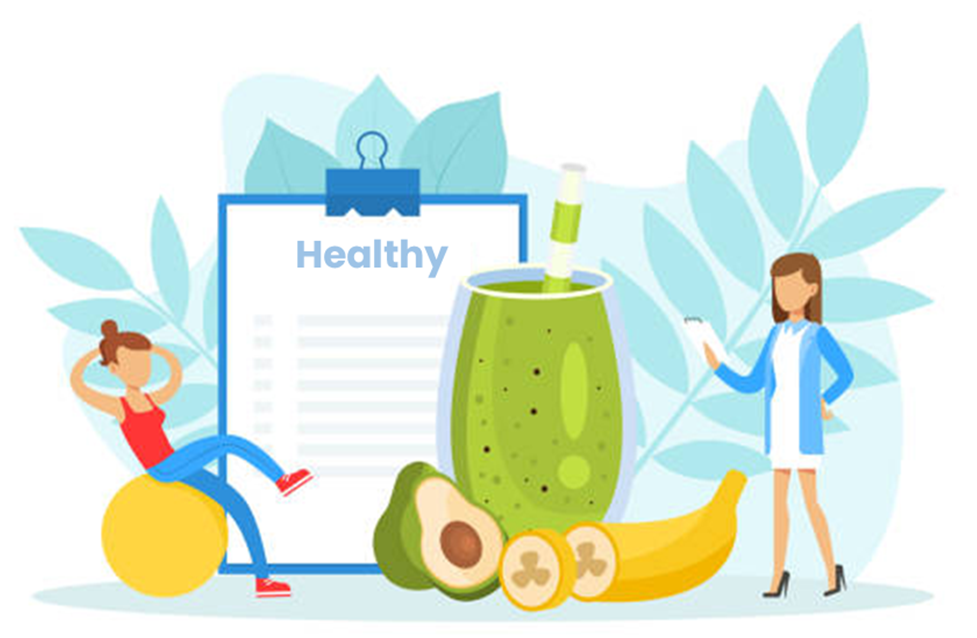
Theory Module 4: Exploring Practical Tools And Techniques For Eating Disorders With Marlene Van Den Berg (23-min)
- Tackling the stigma of eating disorders
- Exploring how clinicians can help clients rescript their narrative
- Understanding the roles of different practitioners in providing support
Integrating Nutrition Into Trauma Treatment: Guided Videos
This program includes short videos which provide examples that draw from naturopathic, meditation, and nutrition-based principles to guide you through the positive effects that nutrition can have on relieving the symptoms of trauma.
Information is provided on how trauma affects the body and how we might counter these effects through nutritional insight and nutrition rituals. Specifically, this program outlines how we can improve our sleep, improve thyroid functioning, balance the gut microbiome, prevent and treat yeast infections, boost the immune system, decrease inflammation, and decrease anxiety and depression through specific foods.
15 practical examples of how nutrition can support trauma healing with Vanessa Ruiz, ND, RN-BSN, and Tanya Zajdel, RN.
Discover informational videos on how specific foods can help support the body through physiological trauma symptoms and improve overall well-being from a naturopathic physician and explore guided grounding rituals that are designed to assist you or your clients in creating new neural associations through food, the gut, and the body.
All Rewire Therapy Programs Come With:
-
A private support community
-
Lifetime access to the program and all future updates
-
Technical support via email and Facebook messenger
-
Start at any time at your own pace
-
A 72-hour money-back guarantee
-
A 30-day program exchange policy
Register Here for $120 $240
You’ll get all expert-led modules, practical techniques for healing trauma with nutrition, learning tools, plus bonuses you can immediately integrate into your trauma toolbox to help you work more effectively with trauma stuck in the body.
Meaningful Feedback
“For the first time ever, I feel like I understand what's happening in my body.”
Andrea, USA
"I was super-skeptical if this would work for me because I had literally tried everything and nothing was helping my PTSD... A week into the course and I already feel a huge difference."
Emily R, New York
"I bought a course on trauma healing from MindValley but totally didn't relate to the teacher or the content. Listening to female experts who have been there really makes all the difference. Thank you so much :-)."
Jessica L, Toronto
"I've learned to truly listen to my body once again. This course has been a true gift."
Jenna, Survivor, USA
"I think the weirdest difference I noticed was that when I was practicing the exercises in Week 1... I began to feel my feet again. I realized I had dissociated from my feet for so long."
Jason R, Los Angeles
"I've been trying to heal my PTSD for years. It always felt like I took 2 steps forward and 1 step back. I just purchased this course and it's already paid for itself. The information in week 1 alone was more helpful than anything else I've done."
Marie G, Quebec
“This course has been so helpful for my patients, especially those who’ve been through trauma.”
Cecilia, Clinical Psychologist, Guatemala
Register Here for $120 $240
You’ll get all expert-led modules, practical techniques for healing trauma with nutrition, learning tools, plus bonuses you can immediately integrate into your trauma toolbox to help you work more effectively with trauma stuck in the body.
Meet The Experts

Tanya Zajdel
Tanya’s work with trauma healing and survivorship has been featured at the Tribeca Film Festival, CBC News, Vox Tablet and Iheart Radio.
Tanya is a mental health worker, a women’s health nurse, and a published feminist author. Tanya focuses primarily on creating programs that facilitate trauma healing through creating new neural connections in the brain called 'neuroplasticity exercises'.
Her techniques combine various proven therapies to repair and reset the nervous system after trauma including somatic therapy, yoga, drama therapy, dance therapy, CBT, qigong, EMDR, vagal toning, authentic movement, and a combination of expressive, creative art therapies.

Vanessa Ruiz, ND, RN-BSN
Vanessa is a Naturopathic physician and registered nurse. She utilizes natural therapies such as biofeedback, somatic therapies, nutrition and botanical medicines in an integrative setting for behavioral health at the Integrative Mental Health Center in Scottsdale, Arizona. She earned her doctorate of naturopathic medicine at Southwest College in Tempe, Arizona, and her nursing degree from Stony Brook University, New York.
She has been featured in the "Dig Deep Documentary" and “Voyage Phoenix” for her work with trauma and natural mental health. She speaks nationally on the effect of adverse childhood experiences, burnout and healing through integrative health. She has also been a practicing nurse for over 10 years, in the areas of pediatrics, geriatrics and global health. She is the founder of Nurses for Natural Health, an organization dedicated to educating and empowering nurses in natural health.
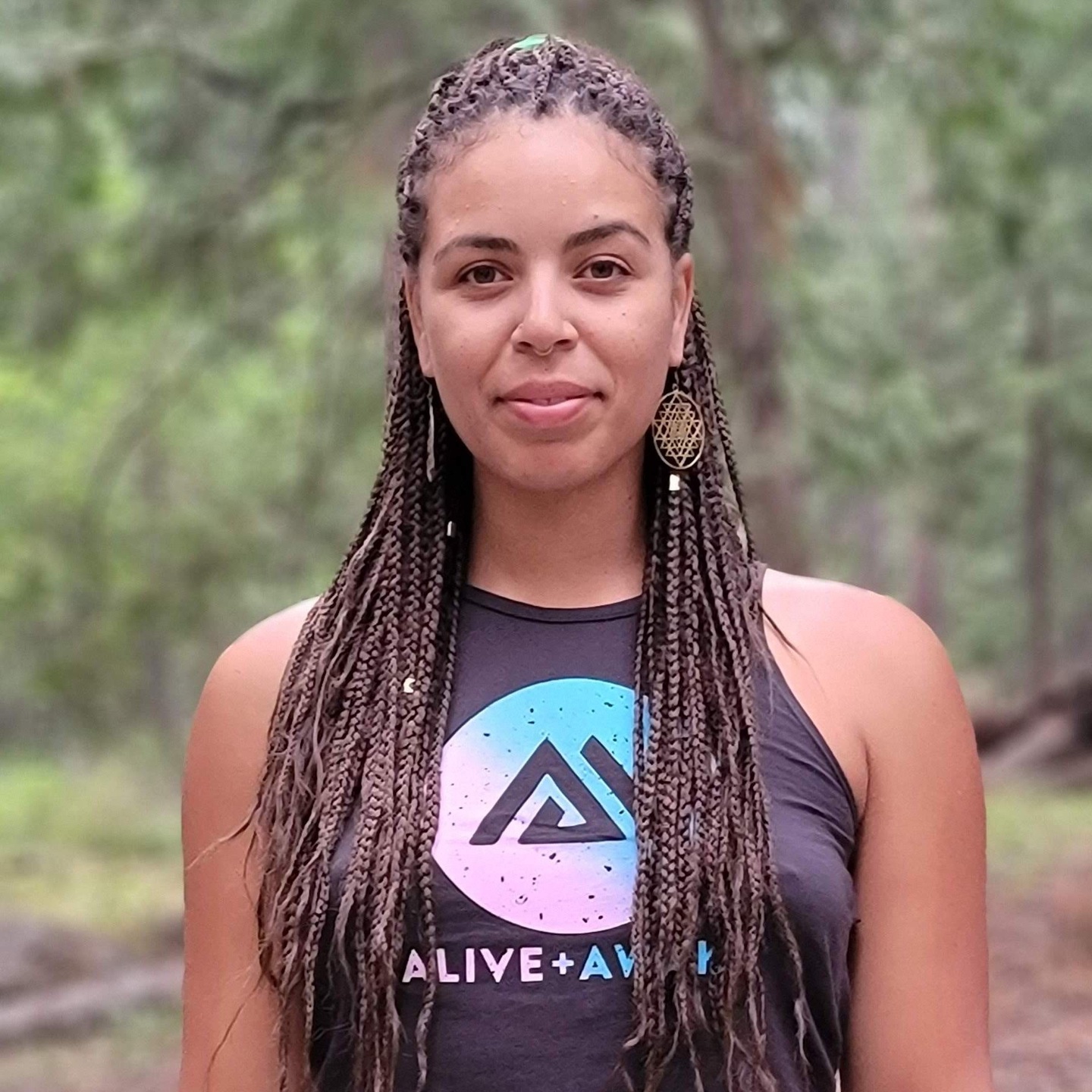
Amy Nicole, RHN, RYT-500
Amy is a Registered Holistic Nutritionist helping entrepreneurs, coaches and high-achievers master their nutrition so they can thrive in their business.
She uses plant-based nutrition alongside the wisdom of Ayurveda to bring the body back into balance.
She offers clients a taste of holistic practices, nibbles of wholesome foods and a whole bunch of helpful resources to make this lifestyle easy peasy, lemon squeezy.
Register Here for $120 $240
You’ll get all expert-led modules, practical techniques for healing trauma with nutrition, learning tools, plus bonuses you can immediately integrate into your trauma toolbox to help you work more effectively with trauma stuck in the body.
Frequently Asked Questions
How long do I get access to the program?
What is your refund policy?
Are the educators in this program licensed to guide me?
Does this course replace going to my therapist’s office?
If I am not traumatized by any one experience but I’m looking to improve my overall mood and mental health, is this course still for me?
Can I use this course to support my loved one who struggles with mental health?
Is it better to combine various therapy techniques (as suggested in your program) to heal from my trauma, or is it better to stick with just one form of therapy?
Will I receive recognition of completion?
Do your programs contain only video content?
Can children participate in your programs?
Do you offer payment plans or scholarships?
Do you offer in-person sessions?
Register Here for $120 $240
You’ll get all expert-led modules, practical techniques for healing trauma with nutrition, learning tools, plus bonuses you can immediately integrate into your trauma toolbox to help you work more effectively with trauma stuck in the body.







